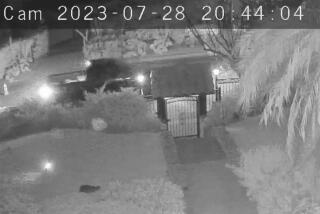America’s ‘Sundown town’ legacy
- Share via
Joe Mozingo’s fine article, “An old diary throws him a curve,” (May 17) rightly focuses on his family story, but it brushes up against one of the biggest untold stories in American race relations. “There’s no coloreds,” Mozingo’s relative says, discussing Greensburg, Indiana. “They don’t let them come back after sunset.”
Indeed, there aren’t any. In 1906, whites drove them out. They proceeded to post signs at the edge of Decatur County, of which Greensburg is the county seat, saying, “Nigger, don’t let the sun set on your back in Decatur County,” complete with a picture of the sun going down. These signs remained up until well after World War II.
Unfortunately, Greensburg and Decatur County were not alone or even unusual. At least 200 other towns in Indiana took the same action between 1890 and 1940, along with 500 in Illinois and thousands more in Northern states from Pennsylvania to Oregon. Most suburbs of Los Angeles had a whites-only policy until at least the 1960s. Often violent expulsions were required, as in Greensburg. Other towns passed ordinances or used more subtle means to keep African Americans from living within their city limits.
This legacy of “sundown towns” still haunts thousands of communities across the north, as well as in Appalachia, the Ozarks and some other parts of the South. For example, Calhoun County, in neighboring Illinois, has a similar tradition of violence toward African Americans lingering after sundown. It voted for Barack Obama 53% to 46% in 2008, the same proportion as the nation. Nevertheless, it boasts not a single black household, and some residents suggested to me last year that it would not prudent for one to move in “just now.”
To recover from this sundown past, a community needs to take three steps:
Admit it. “We did this.”
Apologize. “We did this, and it was wrong, and we’re sorry.”
Promise never to do it again. State, “We don’t do it any more,” and the statement needs to have teeth.
Greensburg has yet to take the first step. The mayor, quoted by Mozingo as using “colored people” as his usual term for African Americans, would not even admit, when interviewed by reporters in 2007, that his city had ever driven out its black population.
Sociologist James W. Loewen is the author of “Sundown Towns” (Simon & Schuster, 2006) as well as of the best-seller, “Lies My Teacher Told Me” (1995). He lives in Washington.
More to Read
Sign up for Essential California
The most important California stories and recommendations in your inbox every morning.
You may occasionally receive promotional content from the Los Angeles Times.













